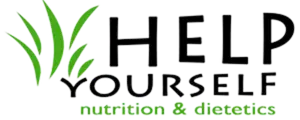Should you take probiotics? Are dietitians ‘pro’ probiotics?
We see it in magazines, on social media and hear it among our friends and family that certain food contains ‘prebiotics’ or ‘probiotics’, or 50 billion trillion CFUs ……..it all sounds very impressive, and very, very scientific…but what do all these terms mean for your gut and overall health?
So, what are they?
I tend to use the analogy that PRE-biotics are the fertiliser for your garden – providing the nutrients and optimising the soil to allow for the plants (gut bacteria) to thrive. PRO-biotics are tiny little plants (organisms) and are a fundamental component of the ecosystem (Thus the prebiotics feed the probiotics and are essential for good gut health).
Where are they found?
PRE-biotics are the non digested part of foods we might think of as high in fibre. Legumes (chickpeas, soybeans, lentils, red kidney beans/baked beans), some fruits (white peaches, watermelon, nectarines), nuts (cashews, pistachio), grains (barley, rye bread, rye crackers, wheat bran/bread, oats), vegetables (garlic, chicory, onion, snow peas, savoy cabbage, Jerusalem artichokes) are all high in prebiotics.
For those of you thinking, hang on, they all sound like high FODMAP foods, you are absolutely correct. FODMAPs all feed gut bacteria, which is why ‘FODMAPPERs’ should only ever cut back FODMAPs just enough to reduce gut symptoms, and not totally or forever.
PRO-biotics are only helpful to your gut while they are still alive, and not many survive stomach acid, so they are not as beneficial to the lower gut as prebiotics but are still part of a healthy diet. If you want to include probiotic foods, rotate between a tub of yoghurt containing live bacteria (with a long time to expiry date); kefir, fresh kimchi or sauerkraut; and some fermented soybean (miso, tempeh) to get a range of different bacteria. Probiotics only remain in your body temporarily, eat them regularly to maintain the benefits.
I was thinking of using a supplement. Is this beneficial?
That is a very, very good question and remains highly contested by scientists, supplement manufacturers and consumers. There are thousands of different types of bacteria in your gut, and throughout and covering your whole body. So, we would suggest feeding the healthy bacteria with prebiotics as your number one priority, with possible probiotic supplements if advised by your doctor or dietitian.
What probiotics do I look out for on the label?
The most common probiotic bacteria are from the Lactobacillus or Bifidobacterium groups, but there are many other types of helpful bacteria, some of which have not even been classified yet! Within each group there are many species and strains, with varying helpful properties for different parts of your body. If you do choose to take a probiotic supplement, make sure it contains a lot of different bacteria (at least 10 healthy bacteria strains), not just a lot of bacteria (CFU) and make sure it is a slow-release variety so the live bacteria survive to the lower gut.
If you suffer from IBS, the above recommendations may not be suitable for you. For more tailored advice, speak to one of our Dietitians .

